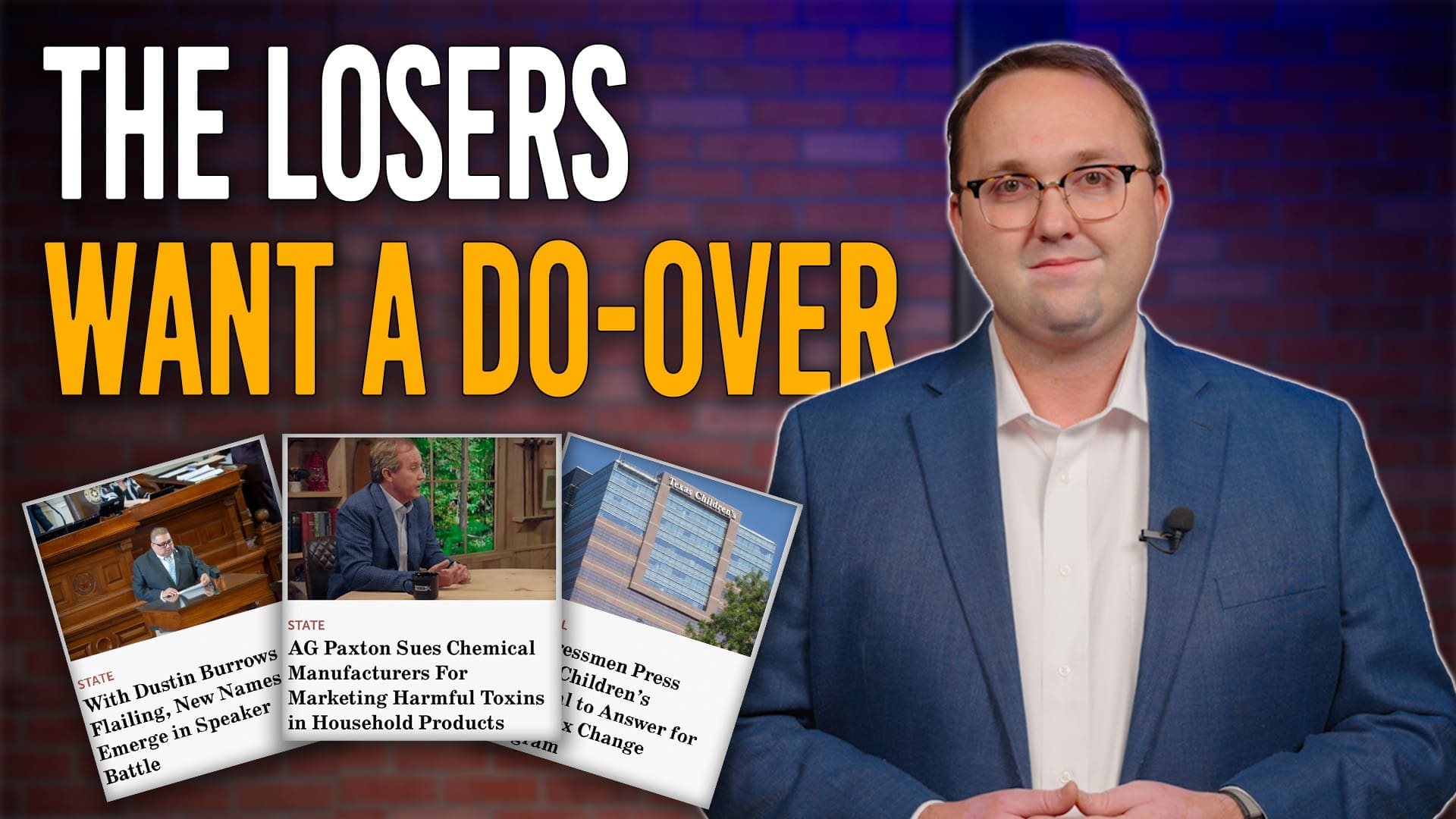Justice Clarence Thomas is never afraid to speak his mind, and he has a lot to say about our current state of government.
Justice Thomas recently headlined the Texas Chapters Conference of the Federalist Society, an annual gathering of the group of conservative lawyers here in Texas. The organization has recently come under fire from the far left due to its role advising President Donald Trump on his selection of federal judges, including Associate Justice of the Supreme Court Neil Gorsuch and current nominee Judge Brett Kavanaugh.
Justice Thomas playfully alluded to this critical role in his remarks, telling FedSoc Executive Vice President Leonard Leo, who hosted the talk in a Q&A format, he was happy to accept Leo’s invitation to the conference since Leo was “the number three most powerful person in the world.”
Since its founding, the Federalist Society—comprised of tens of thousands of the best lawyers, law students, and legal scholars across the country—has been strident in its belief and trust in individual citizens’ ability to make the best choices for themselves and society. With a mission like that, it is no surprise that conservatives and libertarians constitute the majority of its membership.
In his remarks, Justice Thomas was quick to bring attention to court trends he disagreed with. On stare decisis, the principle that Supreme Court Justices should generally uphold past decisions, Justice Thomas asked a simple question.
“Does it apply to the absurd?” he asked. “Do you apply stare decisis even when previous decisions were wrongly decided?”
Thomas argued that when a nation has a written constitution, as we do in the United States, we don’t need to put as much emphasis on precedent, because the written constitution ought to answer questions about the law. He noted that in England—where stare decisis developed as a legal principle—judges have been using precedent for centuries precisely because there is no written constitution and so transplanting the doctrine whole-cloth is unnecessary.
Perhaps Justice Thomas’ most remarkable comments were aimed at the administrative state. The administrative state is a term used to describe executive agencies that are given the power to make rules—essentially legislative power—while also enforcing those rules through their own system of administrative courts separate from the rest of the judiciary.
Texas has its own version of this in agencies like the speech-regulating Texas Ethics Commission, a rogue agency that acts as lawmaker, prosecutor, and judge all at once, in a perversion of rule of law and the separation of powers.
Justice Thomas analogized these bodies to the “royal courts,” emphasizing their lack of accountability. He went on to lament the extreme deference given to federal executive agencies, an opinion shared by his late friend and colleague Justice Antonin Scalia. Thomas shared an insight into a conversation he had with Scalia on the topic before his passing.
We got to the point where we were deferring to positions by agencies in briefs before the court. What kind of review is that? And I think we reached a point there were no protections … and I think the central point being, we were looking to protect that core, that individual liberty.”
Leo asked Justice Thomas about a recent Supreme Court opinion where he expressed concern at the ability of individual federal judges to issue injunctions that can freeze a federal policy nationwide. In response, Thomas asked a simple question about this power, saying:
Where does this come from? Think of all the things that we reflexively go along with, all this terminology … and so what I do with my clerks is I try to figure if it has a legitimate basis.”
The frequency with which rogue judges have been issuing nationwide injunctions on shaky constitutional grounds has exploded during the Trump administration, as leftist judges attempt to subvert the president’s constitutional authority to enforce immigration laws.
The Q&A with Justice Thomas was the inaugural Gregory S. Coleman Memorial Lecture, an annual lecture series that honors Coleman, who tragically died at age 47 in an airplane crash. Coleman, who is survived by his wife and three sons, was Texas’ first Solicitor General, a position under the Attorney General tasked with defending Texas’ laws in various appellate courts, up to and including the U.S. Supreme Court. Prior to serving in that office, Coleman clerked on the Supreme Court for Justice Thomas.
Since its inception, the Solicitor General’s office has been a springboard for the careers of several conservative legal champions, including U.S. Senator Ted Cruz and newly seated 5th Circuit Court of Appeals Judge James Ho.
Coleman was well loved in the conservative movement, and Justice Thomas reflected on his unimpeachable skill and character during his lecture at the conference, saying:
I was trying to think of a word that captured Greg and I would have to say honorable … there was a decency, there was a kindness, there was an honesty, there was a quiet tenacity, there was an unassuming conscientiousness and courageousness. Greg Coleman should be our model and we’d be a better country for it.”
You can watch Justice Thomas’ full remarks here.




